|
By Dr. Tom Horne The Viking Great Army
In the winter of 873, the Viking Great Army descended on the church/monastery complex at Repton in Derbyshire, royal burial place and saint shrine of the Anglo-Saxon kingdom of Mercia, selecting it as the site of its latest ‘winter-camp’, a term relating to the Old English word (wintersetl) for a defensible overwintering position maintained while weather made campaigning difficult. The site was likely targeted due to several factors: its socio-political importance to Mercia; its probable precious metal wealth; a strategic position on a navigable river and near an extant Roman road (today’s A38); and – crucially for Great Army logistics – its renders of food and fodder, taken in from the harvest to feed Derbyshire’s Mercian elites over the winter of 873-4. Subsequent to the sack of St. Wystan’s church – named after the Mercian saint-king once buried in its crypt – and associated ‘double monastery’ (a rare foundation which accommodated both monks and nuns), the Great Army set up camp in and around Repton. After the early seasons of excavation, the theory was that a major defensive position – a ‘D-shaped enclosure’ ditch – incorporating the church structure was created by the Great Army, which established a citadel between the church and the steep banks of the River Trent, now a relic watercourse known as Old Trent Water. With, it seems, tied-up longships under repair and guarded by the camp, and with their people and horses provisioned, the leaders of the Great Army – a mixed force probably consisting of mainly southern Scandinavian veterans of campaigns in Frankia, the Low Countries and Ireland active in England since 865 – could recuperate and plan the further subjugation of Mercia. In 874, the Great Army split in two after leaving the Trent valley, with part of the force heading north towards Northumbria (and possibly a winter-camp in the Coquet Valley) and part to the south.
0 Comments
By Joel Sullivan
Last week marked the end of Bristol University’s departmental excavation at Lower Hazel, near Alveston, South Gloucester. Red River Archaeology undertook the training of the students in support of Bristol University staff as part of their Chartered Institute for Archaeologists (CIfA) accredited BA in Archaeology and Anthropology.
By Dave Gilbert Last year we announced that we had been able to secure funding through the European Social Fund for staff training. We were lucky as this represented some of the last grants available through the Fund, which now that the UK has left the European Union are no longer available. As part of the Evolving Leaders and Gender Equality programmes we were able to sign up four women to participate and work towards an ILM Level 5 Award in Leadership and Management with the aim to support women to transform their strategic thinking and leadership skills, give them the confidence and tools to assess their leadership performance, develop their critical thinking skills, achieve organisational goals, and make strong and informed management decisions. The training is now complete and everyone at Red River Archaeology is so proud of the motivated individuals that took the initiative and stepped forward to undertake this opportunity. it is clear from talking to those involved that they received an excellent learning package. Most importantly this has enhanced their knowledge and skills, which they will be put to good use in their day to day work and pass on these good working practices to their colleagues. It will improve the capability and capacity of our company and directly feed into the efficiency and quality of our service benefitting our project stakeholders at every level. #training #archaeology #management
By Dave Gilbert In May we posted about the start of our collaboration with Bristol University on their Summer School Excavations on the Anarchy Period site near Alveston, South Gloucestershire. Seven weeks and many interesting finds later the excavations have come to an end for this year.
By Dave Gilbert As part of the Castleford Roman Festival on Saturday 18th June Phil Weston, one of Red River Archaeology's senior project managers, attended to lend his expert knowledge to proceedings and show support for the festival. 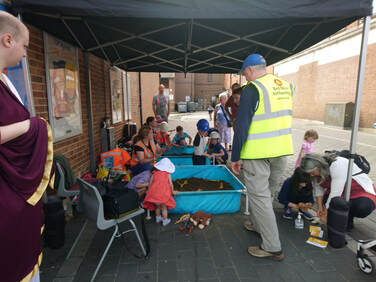 Phil assisted the "Artificial Dig" run by Pontefract's Young Archaeologists Club (YAC) that gave kids the chance to try their hand at digging up the past. The children were able to dress up as an archaeologist, dig for artefacts and learn about the tools and benefits of archaeology. Pontefract YAC is based at Pontefract Museum, it is run by a dedicated group of voluntees and usually meets once a month. 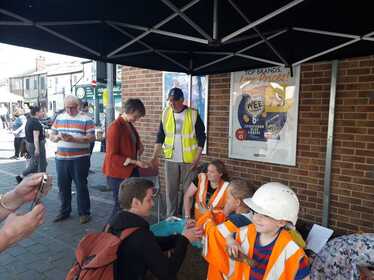 Other activities on the day gave people the opportunity to explore a Roman-themed market with demonstrations and activities such as Roman toy making, science experiments, and pottery throwing. Dozens of people turned up to the archaeological to support the YAC artificial dig, including the Shadow Home Secretary Yvette Cooper. By Dave Gilbert This week saw the start of Bristol University’s departmental excavation at a site near Alveston, South Gloucestershire, which forms part of the University’s South West Anarchy Research Project. Red River Archaeology are providing experienced archaeologists to undertake the training of the students as part of their Chartered Institute for Archaeologists accredited BA in Archaeology and Anthropology.
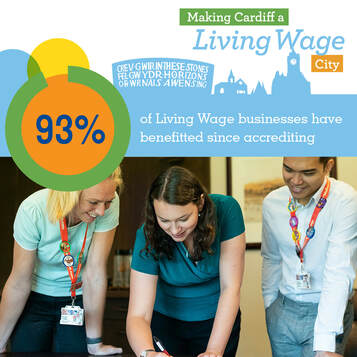 Red River Archaeology became an accredited Living Wage Employer in 2020 and we are proud to be supporting the Living Wage movement in Cardiff from our local office and across the UK. We are committed to ensure every member of staff in our organisation earns not just the minimum wage but the real Living Wage, that is independently set as an hourly rate and updated annually, based on the real cost of living in the UK. By Dave Gilbert
December 3 is the International Day of People with Disabilities and the 2021 theme is ‘Fighting for rights in the post-COVID era.” If anything, the pandemic has highlighted alternative ways of conducting business and operations, taken just a little further these have the potential to reduce the barriers faced by people with disabilities. As a Disability Confident organisation Red River Archaeology is committed to play a role in changing attitudes for the better and committed to equality in the workplace. We have implemented changes to the traditional practices in the workplace and our offices are adapted for easy access with disabled facilities and friendly workspaces. We encourage other businesses to sign up to the Disability Confident scheme, they might be surprised by the contributions that can be made by people that might otherwise have been overlooked. #disabilityconfident #archaeology #peoplewithdisabilities
We would like to take this opportunity to share our advert from this years’ Chartered Institute for Archaeologists (CIfA) Yearbook Directory. If you like puzzles, this is for you - if not, please send it on to the puzzle fans in your life!
In June, we had the opportunity to conduct an archaeological walkover survey in the Scottish Highlands. The site was remote, and our role was to ensure that sites of archaeological potential would not be damaged during a major construction project.
By Sam Wilson (@conflictarchaeo on Twitter and Instagram)In August 2021 I was privileged to be part of a collaborative project in the beautiful county of Northumberland as part of the Heritage Lottery Funded Project ‘Revitalising Redesdale’. Led by Northumberland National Park Authority it also included archaeologists from Wessex Archaeology, battlefield specialist Dr Glenn Foard, landscape archaeologist Dr Tracey Partida as well as a small army of local volunteers. My role as a battlefield archaeologist was to lead a systematic metal detector survey to search for unstratified artefacts from the battle. Our recent excavations at Sedgeberrow, Worcestershire were commissioned by Orion Heritage on behalf of Kendrick Homes. We unearthed two Roman-era burials near a contemporary corn-drying kiln, within a multi-phase archaeological landscape. Works were undertaken ahead of a proposed housing development. The younger of the two males buried at the site was wearing hobnail boots and had had his severed head placed between his feet. By Dave Gilbert For over twenty-five years, the UN’s annual World Water Day has been raising awareness of the importance of water.
“Water is at the core of sustainable development and is critical for socio-economic development, healthy ecosystems and for human survival itself. It is vital for reducing the global burden of disease and improving the health, welfare, and productivity of populations. It is central to the production and preservation of a host of benefits and services for people. Water is also at the heart of adaptation to climate change, serving as the crucial link between the climate system, human society and the environment.” - The United Nations Department for Social and Economic Affairs By Dave Gilbert 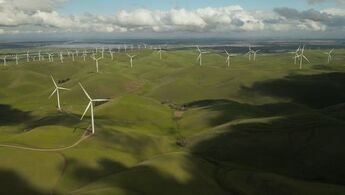 During the Covid-19 pandemic it has been encouraging to hear that there is still the determination and political will of governments across the world to maintain their climate ambitions. The clear message that accelerating the move to a low-carbon economy can both drive economic recovery and build resilience for the future has popular support. The UK Government’s “Build Back Greener” announcement places wind firmly at the centre of the UK’s green recovery and 2050 net zero target. The Prime Minister’s pledge that wind will be the backbone of the UK’s electricity system by 2030, is not only a boost to curbing climate change, but will also see an estimated £50 billion of investment. 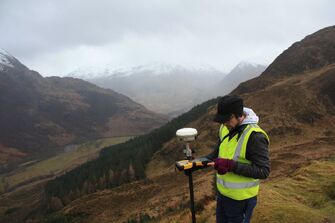 The infrastructural necessary to push the UK’s wind energy capacity also brings with it a requirement to address a number of environmental issues including a need for archaeological investigation. Such investigations are not restricted to concerns of buried remains, but also impacts to historic buildings and standing monuments. Due to issues of noise and visual amenity, a wind farm’s location is often in remote, open areas of land or sited offshore. Such environments are areas where Red River Archaeology have considerable expertise, having worked on the UK’s largest onshore and second largest offshore complexes as well as numerous smaller facilities across the country as well as the first electricity interconnector built between Britain and Ireland. Getting the right expert advice during initial planning is critical. Red River Archaeology have worked closely with clients, planners, and statutory bodies to ensure that the design avoided and mitigated any heritage impact. The Red River team are experienced in identifying alternative approaches that can lead to improvements in the planning and design of development proposals so that they maximise the benefits of the scheme, while also closely cooperating with other project teams to enhance visual impact studies and avoid environmental damage from archaeological activities. the answer my friend is blowing in the wind … so see Red for a Green future
By Dave Gilbert Red River Archaeology Ltd is very proud to be a signatory of the Placemaking Wales Charter. Our expert, multi-disciplinary team based in Cardiff provide heritage planning and design consultation and advice spanning the whole of the built environment in Wales. The Placemaking Wales Charter has been developed by Welsh Government and the Design Commission for Wales in collaboration with the Placemaking Wales Partnership and was launched on the 24th September 2020 by Julie James, Minister for Housing and Local Government. The Charter builds on the strengthening focus on Placemaking in policy and practice in Wales and aims to provide a common understanding of the range of considerations that go into placemaking. The charter outlines six placemaking principles that cover the range of considerations in designing place that have key heritage factors and implications for developers. These inter linked principles include people and community, location, movement, identity, mixed use, and the public realm. Our work can have a significant positive influence on many of these factors. Identity of place looks at the positive and unique qualities of existing places and the importance of highlighting these in the development. Every place is unique, and it is important to highlight this, showing the layers of history and the cultural heritage that differ from one location to another. Location within an already established historic landscape should not be seen as an obstacle to development, correctly handled this can be a positive factor. Historically many areas were mixed-use and the ambition to move to a less car dependant society is an ambition that fit with more historic townscapes. By considering the events and industries that have taken place there to create and develop places that give people a sense of identity and community for the people that live there. This feeds into the public realm principle which is about creating public spaces with a distinct identity, something that a shared heritage and history can deliver. |
Categories
All
|
|
|
|
|
|
|
RED RIVER ARCHAEOLOGY
|
